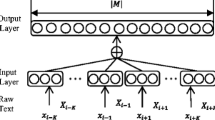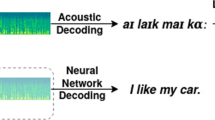Abstract
This paper presents an optimized methodology to design and deploy Speech Enhancement (SE) algorithms based on Recurrent Neural Networks (RNNs) on a state-of-the-art MicroController Unit (MCU), with 1+8 general-purpose RISC-V cores. To achieve low-latency execution, we propose an optimized software pipeline interleaving parallel computation of LSTM or GRU recurrent blocks, featuring vectorized 8-bit integer (INT8) and 16-bit floating-point (FP16) compute units, with manually-managed memory transfers of model parameters. To ensure minimal accuracy degradation with respect to the full-precision models, we propose a novel FP16-INT8 Mixed-Precision Post-Training Quantization (PTQ) scheme that compresses the recurrent layers to 8-bit while the bit precision of remaining layers is kept to FP16. Experiments are conducted on multiple LSTM and GRU based SE models trained on the Valentini dataset, featuring up to 1.24M parameters. Thanks to the proposed approaches, we speed-up the computation by up to 4\(\times \) with respect to the lossless FP16 baselines. Differently from a uniform 8-bit quantization that degrades the PESQ score by 0.3 on average, the Mixed-Precision PTQ scheme leads to a low-degradation of only 0.06, while achieving a 1.4–1.7\(\times \) memory saving. Thanks to this compression, we cut the power cost of the external memory by fitting the large models on the limited on-chip non-volatile memory and we gain a MCU power saving of up to 2.5\(\times \) by reducing the supply voltage from 0.8 V to 0.65 V while still matching the real-time constraints. Our design results >10\(\times \) more energy efficient than state-of-the-art SE solutions deployed on single-core MCUs that make use of smaller models and quantization-aware training.
Access this chapter
Tax calculation will be finalised at checkout
Purchases are for personal use only
Similar content being viewed by others
References
Boll, S.: Suppression of acoustic noise in speech using spectral subtraction. IEEE Trans. Acoust. Speech Sig. Process. 27(2), 113–120 (1979)
Cohen, I., Berdugo, B.: Speech enhancement for non-stationary noise environments. Sig. Process. 81(11), 2403–2418 (2001)
Defossez, A., Synnaeve, G., Adi, Y.: Real time speech enhancement in the waveform domain. In: Interspeech (2020)
Fedorov, I., et al.: TinyLSTMs: efficient neural speech enhancement for hearing aids (2020)
Gholami, A., Kim, S., Dong, Z., Yao, Z., Mahoney, M.W., Keutzer, K.: A survey of quantization methods for efficient neural network inference. arXiv preprint arXiv:2103.13630 (2021)
Hu, Y., et al.: DCCRN: deep complex convolution recurrent network for phase-aware speech enhancement (2020)
Jacob, B., et al.: Quantization and training of neural networks for efficient integer-arithmetic-only inference. In: Proceedings of the IEEE Conference on Computer Vision and Pattern Recognition, pp. 2704–2713 (2018)
Liu, J., Zhang, X.: DRC-NET: densely connected recurrent convolutional neural network for speech dereverberation. In: International Conference on Acoustics, Speech and Signal Processing, pp. 166–170. IEEE (2022)
Ma, J.: A higher-level Neural Network library on Microcontrollers (NNoM), October 2020. https://doi.org/10.5281/zenodo.4158710
Reddy, C.K., Beyrami, E., Pool, J., Cutler, R., Srinivasan, S., Gehrke, J.: A scalable noisy speech dataset and online subjective test framework. In: Proceedings of Interspeech 2019, pp. 1816–1820 (2019)
Reddy, C.K., et al.: Interspeech 2021 deep noise suppression challenge. arXiv preprint arXiv:2101.01902 (2021)
Stamenovic, M., Westhausen, N.L., Yang, L.C., Jensen, C., Pawlicki, A.: Weight, block or unit? Exploring sparsity tradeoffs for speech enhancement on tiny neural accelerators. arXiv preprint arXiv:2111.02351 (2021)
Valentini-Botinhao, C., et al.: Noisy speech database for training speech enhancement algorithms and TTS models (2017)
Valin, J.M.: A hybrid DSP/deep learning approach to real-time full-band speech enhancement. In: 2018 IEEE 20th International Workshop on Multimedia Signal Processing (MMSP), pp. 1–5. IEEE (2018)
Valin, J.M., Isik, U., Phansalkar, N., Giri, R., Helwani, K., Krishnaswamy, A.: A perceptually-motivated approach for low-complexity, real-time enhancement of fullband speech (2020)
Xia, Y., Braun, S., Reddy, C.K., Dubey, H., Cutler, R., Tashev, I.: Weighted speech distortion losses for neural-network-based real-time speech enhancement. In: International Conference on Acoustics, Speech and Signal Processing (ICASSP), pp. 871–875. IEEE (2020)
Author information
Authors and Affiliations
Corresponding author
Editor information
Editors and Affiliations
Rights and permissions
Copyright information
© 2023 The Author(s), under exclusive license to Springer Nature Switzerland AG
About this paper
Cite this paper
Rusci, M., Fariselli, M., Croome, M., Paci, F., Flamand, E. (2023). Accelerating RNN-Based Speech Enhancement on a Multi-core MCU with Mixed FP16-INT8 Post-training Quantization. In: Koprinska, I., et al. Machine Learning and Principles and Practice of Knowledge Discovery in Databases. ECML PKDD 2022. Communications in Computer and Information Science, vol 1752. Springer, Cham. https://doi.org/10.1007/978-3-031-23618-1_41
Download citation
DOI: https://doi.org/10.1007/978-3-031-23618-1_41
Published:
Publisher Name: Springer, Cham
Print ISBN: 978-3-031-23617-4
Online ISBN: 978-3-031-23618-1
eBook Packages: Computer ScienceComputer Science (R0)




